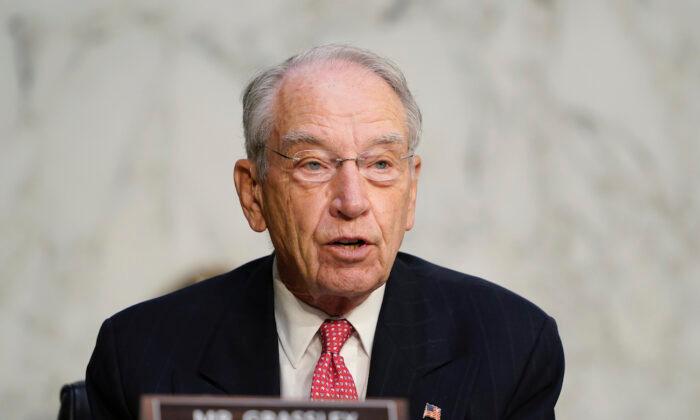We’ve all seen example of the various texts between former FBI Agent Peter Strzok and FBI Counsel Lisa Page. One thing remains constant throughout the public versions of their interactions—the heavy use of redactions.
In addition to these, President Trump also directed the Department of Justice (DOJ) and the FBI to publicly release all text messages of former FBI Director James Comey, former Deputy FBI Director Andrew McCabe, DOJ official Bruce Ohr along with those of Strzok and Page relating to the Russia investigation.
The released texts are to be fully unredacted.
Interestingly, the biggest area of resistance from the DOJ and FBI may actually relate to producing the unredacted texts from these individuals.
Which brings me to a question. Why have there been redactions of the Strzok/Page text messages in the first place? I fully understand why the DOJ and FBI wouldn’t want those texts made public. But desire for protection from embarrassing or incriminating exposure does not constitute a legal reasoning.
Either there is no classified information contained within the Page/Strzok texts or they were both violating very clear departmental policy and national security laws. There really is no middle ground here.
46. Unless explicitly authorized by the Authorizing Official (AO) for mobile devices, follow these rules:
These messages may also implicate other Department-wide Rules, such as Department of Justice Information Technology Security Rules of Behavior for General Users.Inspector General Horowitz is directly referring to the DOJ rules I cited above. He also discusses Departmental policies regarding text messages as it applies to Page and Strzok:
Because these messages were exchanged on government systems and devices, they were never “private.” Every Department employee sees a notice each time he or she logs onto the Department’s network informing him or her that there is no reasonable expectation of privacy in communications exchanged on government systems.These messages were at all times potentially subject to being reviewed by others (including the Office of Inspector General) and to being disclosed to the public.
Finally, Horowitz invokes the FBI Records Management Training, which specifies: “While all documents are viewed for privilege and redacted prior to release, there is no claim of privilege covering inappropriate or embarrassing statements.”
To my knowledge, no one from the DOJ has ever provided a direct rationale to Congress for redactions contained throughout the Page/Strzok texts. Nor have members of Congress aggressively pushed the DOJ for a consistent rationale or approach in regards to the entire redaction process.
The issue of the text redactions differs materially from the redactions in the FISA application renewal on Trump campaign adviser Carter Page.
Unlike the Page FISA application, which details “sources and methods,” there should be no such issue in the Page/Strzok texts. There should be no classified information or national security issues present. Exposure of misdeeds does not merit redaction.
I’ve personally gone through hundreds—if not thousands—of the Page/Strzok texts. I compared originally redacted texts with those for which redactions were later removed or disclosed by Horowitz or Sen. Ron Johnson (R-WI).
In the process, I’ve seen numerous instances of questionable actions by FBI employees. However, I’ve yet to find anything remotely bordering on classified or relating to national security.
The redactions were likely put in place to keep questionable or illegal activities by the FBI and DOJ from being made public. Now, the DOJ is going to have to defend those actions. They’ve boxed themselves into a catch-22.
If the texts are provided in unredacted format, they will almost certainly reveal that there was never a need for redactions to begin with. If the DOJ continues to insist on keeping those redactions in place, they are going to be forced to provide real and material reasons for doing so.
Congressmen with high-level security clearances, such as Rep. Devin Nunes (R-Calif.) and Sen. Chuck Grassley (R-Iowa), are going to rightfully demand to see the underlying, still-unredacted information.
Either way, the texts will ultimately come out. And they will almost certainly show what most of us already know: there was never a legal reason for the redactions in the first place.
The redactions were being used for one purpose and one purpose only—to provide the DOJ with protection from Congressional and public sunlight.






Friends Read Free